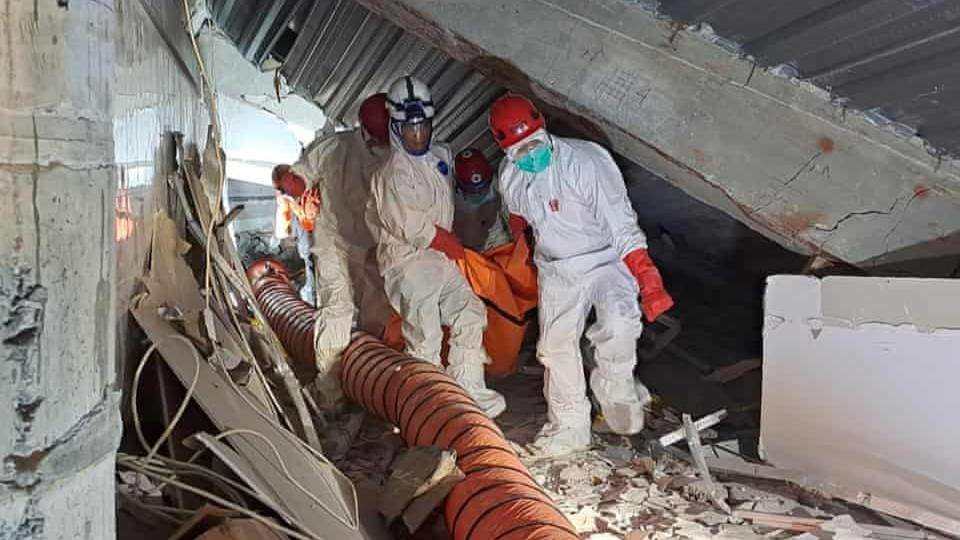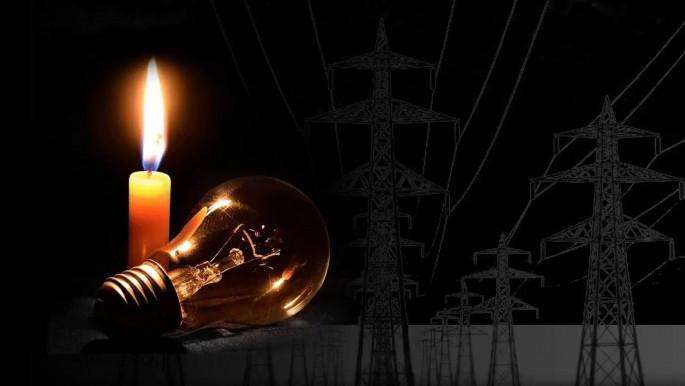The present interim government of Nobel laureate Professor Yunus has some major challenges like curbing price of commodities, generating new employment, curbing corruption, reforming the banking sector, ensuring good governance, sound law and order situation and energy security, attracting new investment and protecting minorities, said economists, business leaders and policy makers.
Sheikh Hasina, the long-serving Prime Minister of Bangladesh, stepped down on August 5, 2024 and left the country amid massive student protest, leaving the economy of Bangladesh into a total mess.
After the liberation war in 1971, Bangabandhu Sheikh Mujibur Rahman got a shattered economy and the people of this country suffered a lot during her tenure spanning over three years and a half.
The present interim government of Nobel laureate Professor Yunus has also got a shattered economy and the people of this country need patience to overcome economic mess that Sheikh Hasina, the last brutal dictator of Bangladesh, left while fleeing to neighboring India
The energy crisis has deepened in Bangladesh as the country is experiencing load-shedding during the scorching hot weather
He said that energy demand dropped during December –January period as the government has to give capacity surcharge to the power producing companies
Dr Ijaz Hossain, Professor of Department of Chemical Engineering of Bangladesh University of Engineering and Technology (BUET), while talking to The Dazzling Dawn said that Bangladesh usually experiences load-shedding during March –April and September.
He said load-shedding to the tune of 1000 megawatts is tolerable, but the load-shedding to the tune of 2000-2500 megawatts is intolerable. But the load-shedding crosses 2000-2500 megawatts in some days, crippling the life miserable during the scorching hot weather. The climate change with scorching hot weather and high humidity make life unmiserable.
Dr Ijaz Hossain said the interim government has been in a catch 22 situation and the interim government was not prepared to experience this situation.
Foreign currency reserve in Bangladesh dropped alarmingly after the Russia-Ukraine war began in February 2022 and the reserve dropped to some 20-22 billion US dollars. The reserved climbed to 48 billion US dollars in 2021 banking on robust export earnings. As the reserve is low, Bangladesh is struggling to import necessary coal, LNG and oil –the main ingredients to produce power.
To a question how Bangladesh can attract US investment in the Indian ocean on a win-win basis, Dr Ijaz Hossain, Professor of Department of Chemical Engineering of Bangladesh University of Engineering and Technology (BUET), said “Bangladesh did manage to attract investment from USA companies in its oil and gas sector. Several oil and gas companies got involved in exploration during the mid-nineties. In fact, one of the largest fields, which is providing nearly 50% of our present gas supply, was discovered by an American company, Occidental, in 1998. UNOCAL later joined Occidental; but Chevron acquired UNOCAL. At that time many other USA companies showed interest in exploring for oil and gas in Bangladesh, but Bangladesh failed to attract these companies. At that time the left-wing parties mounted a severe campaign against USA interest in Bangladesh. This has created a very negative impact among the USA companies.
The USA is the leading country in terms of technology to extract oil and gas. The center of excellence and of advanced technologies relating to oil and gas are North America and a portion of EU (Norway and UK). Not only do these two regions have the best technology, they also have spare cash to invest. However, it is not easy to attract USA investment. There are three main reasons.
According to the Bangladesh Bank's report, as of June 2022, the United States holds the largest foreign direct investment (FDI) stock in Bangladesh, amounting to $4.15 billion. The United Kingdom follows with $2.42 billion investment, while Singapore holds the third position with $1.61 billion, and China takes the fourth spot with $1.47 billion.
Meanwhile, a UN tribunal in 2014 awarded Bangladesh nearly four-fifths of an area sprawling over 25,000 sq km (9,700 sq miles) in the Bay of Bengal, ending a dispute over a sea border with India that has ruffled ties between the neighbours for more than three decades.
Sharier Khan, Publisher and Executive Editor of the Business Standard, in a report in the daily said “ The massive ongoing 2000-megawatt (MW) load shedding has stemmed from severe financial mismanagement and excessive import dependence left by the Awami League government which could not afford to secure enough primary fuel to run the country's power plants for the last three years.
Against the current demand of 15,000-16,000 MW of electricity, the country has the capacity to generate 24,000 MW using natural gas, coal, fuel oil and renewables, alongside 2,500 MW imported from India, Sharier Khan, who worked with the energy with over 25 years .
However, in reality, the country is now generating 10,500 MW on its own on top of imports — leaving a shortfall of around 2000 MW.
So, why can't the government run the remaining power plants that use coal, gas or oil? Simply put, it lacks the funds to import sufficient primary fuel.
Due to heavy reliance on imported fuel to run Bangladesh's energy sector, the country now requires $5.7 billion annually to cover the cost of power from India, as well as Liquefied Natural Gas (LNG), coal, and petroleum products for power generation.
Of this amount, Adani alone claims $1.2 billion for 1500 MW of power imports, whereas it costs around $400 million more to import another 1100 MW from India.
The government's outstanding debts have reached a staggering Tk35,000 crore with private power producers and India's Adani, along with $500 million owed to LNG suppliers and over $200 million to Chevron for gas supplies from the Bibiyana and Jalalabad fields, according to official sources.
Meanwhile, prices of essentials are still high in the market crippling the poor and limited income consumers and the interim government has a major challenge to curb the price. Flood in some districts has damaged some croplands in the country and production of rice and crop may also suffer slightly. Again the government may import some rice to stabilize the market later, but as price of rice is higher in the international market and taka lost 25-30 percent against the greenback making the import cost higher
Finance, commerce and science and technology adviser Salehuddin Ahmed said a quick fall in prices of all essential commodities was unlikely to happen.
He, however, said there was noticeable fall in prices of some of the essential items.
The finance adviser said that there were many reasons for the price hikes of essentials, which could not be brought down drastically.
A decade-high overall inflation has been attributed to high food inflation prevailing in the country over the past two years.
On August 8, the present interim government assumed office after the Awami League-led regime was ousted amid a student-led mass uprising.
Food inflation climbed to 14.10 per cent in July, almost close to average food inflation at 14.11 per cent in 2010-11.
Referring to the recent initiatives of duty cuts and the directives given to the businesses, the finance adviser said improvement in the price situation of essentials would be seen in the next few months.
He said that the price hike of potatoes and onions had already been checked.
The finance adviser said that the prices of protein items were expected to fall as the businesses and producers had already been asked not to pass the higher costs on consumers on the pretext of high prices of inputs.
Replaying to a question, the finance adviser said that the Bangladesh Bank had already taken measures to restructure problem banks.
Besides, the central bank governor, Ahsan H Mansur, announced establishing a task force for the recovery of defaulted loans and laundered money.
Finance Adviser Salehuddin said that the bribe culture is the biggest is one of the major obstacles to doing business or investing in Bangladesh.
"One of the biggest problems in investing or doing business in Bangladesh is that every door, every chair, every table wants money [bribe]," he said while addressing business leaders at the National Business Dialogue in Hotel InterContinental in Dhaka.
"We want to be free of this. We are taking initiative to make business easier. We want to create a level playing field for everyone by reforming this tradition," added the adviser.
Speaking as a special guest at the view-exchange meeting, he said a crisis is plaguing the financial sector because of the "legacy" created in the last 15 years during the ousted Awami League-led government.
"We are facing a challenge. It is difficult to work bypassing this legacy. We will not get much time [to work]. But we are trying to restore confidence [among businessmen]," he told the business leaders.
Speaking about the recent initiatives taken to reform various sectors, the adviser said commissions have been formed to reform the banking sector and the capital market.
"We want to end the dependency on banks for financing and become capital market oriented. Investors will collect money from the stock market without taking bank loans for business expansion. In other countries, financing is done with money from capital markets," he said.
On the occasion, the finance adviser also described the National Board of Revenue (NBR) as another "major obstacle" to investment and business.
"We have taken initiatives to reform the institution. We will take initiative to make the tax laws business friendly. We are focusing on increasing employment through ease of doing business. Our job is to remove business barriers and create a level playing field for everyone," he said.
Salehuddin also called on trade bodies to be more "realistic".
"Trade bodies should not only think about themselves. They should also listen to businessmen in remote regions like Rangpur. All businessmen should be given equal importance to support the legislation. It should be ensured that no one can make abnormal profit. It should also be ensured that no one loses their capital," said the adviser.
On the occasion, businesses called on the government to postpone Bangladesh's graduation to a middle-income country as it will result in Bangladesh losing many facilities it enjoys as a least-developed-country.
In response, the finance adviser promised that the government will study the demand.
"We have not yet begun working on LDC graduation. We have opportunities to discuss the pros and cons of the graduation. We have already discussed the GSP facility. Our aim is to increase business and employment."
Meanwhile, Bangladesh Bank Governor Ahsan H Mansur said that reforms have already begun in the banking sector and the situation is improving fast, said Bangladesh Bank Governor Ahsan H Mansur.
Reforms have already begun in the banking sector and the situation is improving fast, said Bangladesh Bank Governor Ahsan H Mansur.
In a text message sent to citizens today (12 September), the governor said, "Have faith in us and carry out regular banking activities."
Following the fall of the Awami League-led government, there has been a reshuffle in all sectors, including the banking sector.
Boards of different banks have been dissolved while action is being taken against those who carried out widespread corruption.
The Bangladesh Bank has formed a six-member taskforce to conduct reform works in the banking sector.
This taskforce will assess the current financial situation, distressed assets and major risks in the banking sector, the central bank said in a circular issued yesterday.
It will also review the financial indicators of weak banks and liquidity situation, as well as assess the actual condition of loans, provision deficit, net capital, and actual value of assets of the banks.
Meanwhile, the interim government has a major task to ensure sound law and order situation as the past Awami League government transformed the country’s law enforcement agencies into ‘monsters’ over the last 15 years
The interim government should ensure sound law and order situation and protect business establishments and businessmen to revive the economy, as Sheikh Hasina, the ousted Prime Minister and brutal dictator, left the country in derailed conditions, said leaders of the Japan Chamber of Commerce and Industry (JBCCI), International Chamber of Commerce, Bangladesh (ICCB), Bangladesh Garments Manufacturers and Exporters Association (BGMEA), Federation of Bangladesh Chambers of Commerce and Industry (FBCCI) while talking to this correspondent.
The last ‘brutal dictator’ and her cohorts plundered millions of dollars out of the country during the last 15 years making ‘corruption’ a culture among a section of civil bureaucrats and creating an unhealthy competition in the society.
However, as the country is going through a transition period, smooth engagement and participation of the existing import and export houses in the country is also important to retain the economy on the right track, said a leader of the Federation of Bangladesh Chamber of Commerce and Industry(FBCCI).
The economy of Bangladesh has suffered a massive blow during the student movement on quota system in the government job during the period of July, 2024, said a top leader of the Japan-Chamber of Commerce and Industry (JBCCI).
He said the cumulative loss of the economy would be higher during recent violence than Bangladesh economy suffered after the during Holey Artisan incident in 20216 and Rana Plaza tragedy in 2013.
He said the economy will require at least 5 years to overcome the loss centering movement and violence and laid emphasis on normalcy to run business.
High economic disparity, corruption, nepotism, slow employment creation, Russia-Ukraine war, siphoning off state wealth out of the country by some corrupt persons have a created crisis in the economy, said a retired professor of the economics department of the Dhaka University while talking to this correspondent.
Secretary General of the Australia Bangladesh Chamber of Commerce and Industry (ABCCI) and also Director of Shah Fatehullah Textile Mills Limited Jobayer Tansim Ahmed said a section of miscreants are engaged the looting and plundering of the properties in the country.
Meanwhile, the United States has lowered its travel advisory for Bangladesh from Level 4 to Level 3, urging its citizens to reconsider travel rather than avoiding it entirely. This adjustment signals a perceived reduction in immediate threats to US nationals.
The revised advisory was issued shortly before a US delegation's scheduled visit to Bangladesh.
The level was raised to 4, the highest level, when the US asked its nationals not to travel to Bangladesh amid student protests in July and August.
"Reconsider travel to Bangladesh due to civil unrest, crime, and terrorism. Some areas have increased risk," reads the latest travel advisory. In its country summary, the US said since the July 2024 "civil unrest, violent clashes" have largely ended, but conditions may change on short notice.
US citizens are reminded to avoid all gatherings, even peaceful ones, that could turn violent with little or no warning.




_2.jpg)



.svg)


